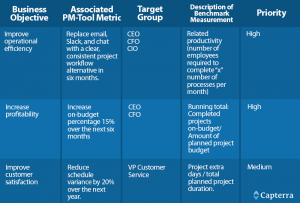Bookkeeping has a long history of its own from Ancient Rome, to Luca Pacioli innovating double-entry bookkeeping forever. Yet, today technology has invaded everything around us, bookkeeping is not left behind.
In fact, nowadays small businesses can save time and money by hiring what is known as virtual bookkeepers.

Image Credit: Kvkirilov /Getty Images
What Is Virtual Bookkeeping?
Virtual bookkeeping allows an accountant or a bookkeeper to provide their services to their clients, remotely. Virtual bookkeeping is sometimes called online bookkeeping or remote bookkeeping.
Virtual bookkeeping service is often provided either by freelancers through online gig platforms or online accounting firms.
Virtual bookkeeping is highly convenient for both employers and bookkeepers since it creates huge flexibility. It also allows businesses to reduce their accounting costs as they can keep a balance in staffing and arranging workloads.

Image Credit: Peshkov /Getty Images
How Does Virtual Bookkeeping Work?
In order for a bookkeeper to do their job, businesses must give access to their servers and their accounting software. The bookkeeper needs to collect all the financial documents such as bank statements and receipts from the employer so that they can complete the bookkeeping task assigned to them. As we live in a world that is heading towards a more “working from home” mindset, bookkeepers tended to work from their computer at home rather than in the office.
Usually, both parties must use the same means of communication and workflow tools to avoid any confusion and keep track of the work progress. Small business accounting software like Quickbooks Online and Xero are cloud-based apps. If the employer uses either of them, the bookkeeper should be proficient to use that software.
Sometimes the company will provide all the necessary equipment, tools, and software to the bookkeeper to complete the work, and other times the accountant can simply clock in at his personal computer, complete the job and send the financial reports to the employer through email.
Compensation for the work can still be as wage or fees paid for the service. If a virtual bookkeeper is hired as a remote working employee by the company, the compensation is the same as wages paid to the regular employees. If the bookkeeper works as a freelancer, then they have the freedom to set their own schedule and pricing for their services.
How Much Do Virtual Bookkeepers Charge?
Virtual bookkeepers often give a free consultation to their potential clients to evaluate the workload, problems, and services and then able to generate a quote. When it comes to freelance virtual bookkeepers, the pricing might vary depending on the experience and skill level. It may also depend on how complicated the work is.
Some of them might even have a fixed hourly charge from $ 25 per hour up to $ 200 per hour depending on their knowledge and experience. Others might offer packages for their services that might range from $ 250 up to $ 1000 a month depending on their experience and the volume of the project you want to get done.
You can always negotiate payment terms with bookkeepers as their prices vary from one to another. This is true especially when you are working with a group of virtual bookkeepers or accountants that have different tasks. Some bookkeepers may offer accounts receivable and payable services while others prefer cash-based bookkeeping which includes data entry, categorizing expenses, bank reconciliation, and financial statement preparation based on bank statements.
What Does a Virtual Bookkeeper do?
While covering a topic about virtual bookkeeping, it’s worth mentioning what a virtual bookkeeper does. Virtual bookkeepers may not be able to do things that have to be done physically in an office environment, but their main job is to document and summarize every earning and spending as neatly and meticulously as possible.
These are the most common tasks you can expect a virtual bookkeeper to do;
- Recording every transaction, both credits, and debits.
- Documenting receipts for every transaction
- Updating the ledgers regularly in chronological order
- Processing daily banking activities
- Issuing payrolls for staffs
- Reconciling accounts to assure the accuracy of the books
- Delivering financial reports regularly, usually every end of the month
- Notifying management of every finance issues and variance
- Paying taxes and taking care of tax returns if needed
- Monitoring cash flows and annual company budget

Image Credit: Hasloo Group Production Studio
Benefits of Hiring a Virtual Bookkeeper
If we should compare the advantages of hiring a virtual bookkeeper versus an employee bookkeeper this how it would look like:
- You would pay your employee for a full year while you can pay a virtual bookkeeper only for the project that they are working on.
- You don’t have to pay a virtual bookkeeper for sick days.
- You don’t have to worry about ‘vacation pay’ when it comes to virtual bookkeepers as long as they get their job done on time.
- Time is the greatest asset that we have and you don’t have to worry about paying the virtual bookkeepers for lunchtime, break time, or ‘playtime’. They can just clock in and out every time that they have to do their job.
- Depending on where you live, you usually don’t have to pay for the health or disability insurance to a virtual bookkeeper like in the case of an employee where these expenses are paid by the company.
- The salary you are paying to a virtual bookkeeper is usually less than that of an employee. A bookkeeper is usually paid around $ 42,000 per year in the United States, so it would be around $ 3500 monthly plus the benefits. We said earlier that an average monthly package when hiring a virtual bookkeeper would be around $ 1000, which is way more convenient.
- Employment termination is often complicated and it may require additional costs. However, when you work with a virtual bookkeeping freelancer or company, you can terminate the contract as soon as you don’t need the service.
Is Virtual Bookkeeping Really Worth It?
Virtual bookkeeping offers a lot of benefits not only to small businesses but also to the bookkeepers. While companies can save a lot of money and time by hiring an expert bookkeeper to work remotely, that is not the only advantage that virtual bookkeeping can offer.
While hiring a remote bookkeeper or accountant, business owners can now check reviews and ask for references from previous employers which can demonstrate how trustworthy and professional a particular bookkeeper is. Virtual bookkeeping helps both the bookkeeper and the business to stay more organized. Virtual bookkeepers have more incentive to finish their projects on time so that they can make more time for the next one. Another benefit of virtual bookkeeping is that work can be done from anywhere and at any time so be it night or day, at the bar or in the house, the bookkeeper is going to get the job done.
Virtual bookkeeping is replacing the traditional method just like any other job that can be done remotely. What is the point of stacking with the traditional way of bookkeeping if virtual bookkeeping has more to offer to both parties; small businesses and bookkeepers? Technology is moving forward every day and so is bookkeeping and we are looking towards an even brighter future.
Business & Finance Articles on Business 2 Community
(42)
Report Post



